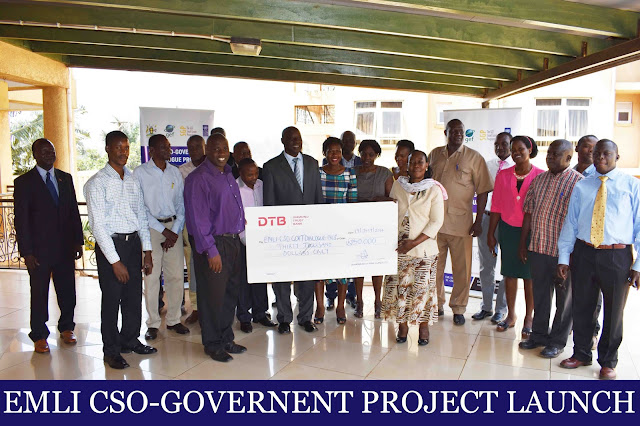Highlight of GEF ECW for Eastern Africa - Report
 |
| Participants during the GEF ECW workshop |
In light of the above, on
18-21 February, 2020 the GEF secretariat organized the 2020 ECW for Eastern
Africa in Nairobi Kenya at Crown Plaza Hotel. The workshop attracted
participants from 14 countries: Comoros, Djibouti, Eritrea, Ethiopia, Kenya,
Madagascar, Mauritius, Rwanda, Seychelles, Somalia, South Sudan, Sudan,
Tanzania, and Uganda, composed of representatives of the GEF country OFPs,
Agencies, Civil Society Organizations, SGP coordinators and GEFSEC representatives.
The workshop was informed
of the various components in project review and the GEF 7 allocations per focal
areas 1) Biodiversity (USD 1,292 million); 2) Climate Change (USD 802m); 3)
Land degradation (USD 475m); 4) chemicals and waste (USD 599 million); and 5)
International Waters (USD 463 million).
It was highlighted that
the Chemicals and waste and international Waters programs are not under the
STAR allocation which is a fixed allocation as opposed to non-STAR. The non-
STAR refers to the additional money allocated based on the magnitude of issues
to address as opposed STAR where money is allocated based on country
performance determined through a predetermined formula by GEF.
The key GEF impact
programmes included: 1) Sustainable cities- commenced in GEF 6 with 3
cities-Daka, Abuja and Johannesburg; 2) FOLUR; and 3) Sustainable forest
management. These are set out to tackle the cause and drivers of environmental
destruction in an integrated way, rather than just dealing with its symptoms as
it was for many projects in the past.
The workshop was informed that in GEF 6, the selection criterion for cities was based on consultations conducted with countries; however, countries indicated that this was not transparent. Therefore in GEF 7 the selection was based on dialogues, expression of interest through the OFP (countries submitted the proposals) and the best proposals were selected.
The key strategic
principles for GEF projects were; country driven, results and global
environmental benefits, integration and synergy of programs, scale of impact,
co-financing and leveraged investment and private sector engagement.
Recommendations
The following were recommendations
highlighted to advance the role of CSO Network in GEF processes;
·
GEF CSO
Network website should be activated to facilitate access to network information
·
There is need to explore the more effective way of information
sharing with in the GEF CSO network members apart from online engagement
·
Need to
increase SGP allocation from USD 50,000
·
Need to
strengthen the communication with the GEF agencies, the OFP and CSOs.
·
Enhance training on evaluation and this should come before countries
undertake projects resource allocation.
·
A regional capacity building project should be developed to enhance
the capacity of the GEF CSO Network in proposal development and project
implementation.
·
CSOs should liaise with the National SGP coordinators on how to
influence coordination at the national level through SGP grant allocation
Follow-up actions
1.
Activation
of the GEF CSO Network website
2.
Share
membership application forms to the GEF CSO network members.
3. RFP for Eastern Africa to
follow up with Mr. Charles Nyandiga on the feasibility of a regional capacity development
project for CSOs.
The detailed report is the site; https://www.scribd.com/document/456177539/Report-of-GEF-ECW-2020?secret_password=6V4k9lY8CvGoQlXOfZQN
Other informative sources;

Comments
Post a Comment